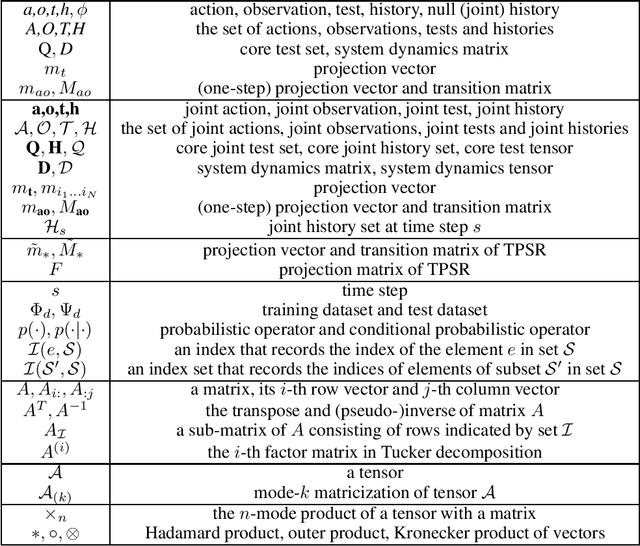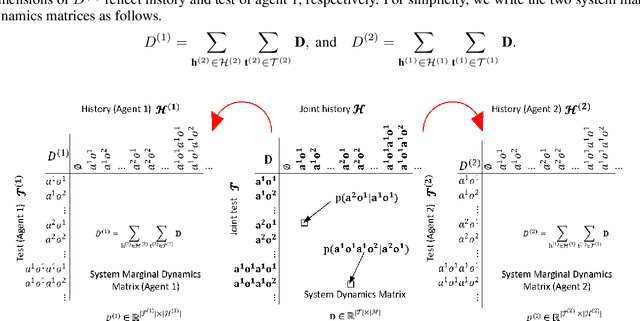Tensor Decomposition for Multi-agent Predictive State Representation
Paper and Code
May 27, 2020



Predictive state representation~(PSR) uses a vector of action-observation sequence to represent the system dynamics and subsequently predicts the probability of future events. It is a concise knowledge representation that is well studied in a single-agent planning problem domain. To the best of our knowledge, there is no existing work on using PSR to solve multi-agent planning problems. Learning a multi-agent PSR model is quite difficult especially with the increasing number of agents, not to mention the complexity of a problem domain. In this paper, we resort to tensor techniques to tackle the challenging task of multi-agent PSR model development problems. By first focusing on a two-agent setting, we construct the system dynamics matrix as a high order tensor for a PSR model, learn the prediction parameters and deduce state vectors directly through two different tensor decomposition methods respectively, and derive the transition parameters via linear regression. Subsequently, we generalize the PSR learning approaches in a multi-agent setting. Experimental results show that our methods can effectively solve multi-agent PSR modelling problems in multiple problem domains.
 Add to Chrome
Add to Chrome Add to Firefox
Add to Firefox Add to Edge
Add to Edge